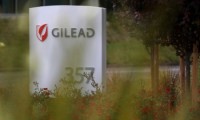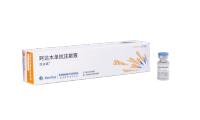-
Simple Blood Test Could Detect Risk of Viral Infection-Induced Cardiac Arrest
- Source: drugdu
- 90
- March 9, 2024
-
Gilead and Merus enter trispecific antibody discovery deal
- Source: drugdu
- 108
- March 9, 2024
-
Gilead Sciences Signs Yet Another R&D Alliance for Multi-Target Cancer Therapies
- Source: drugdu
- 105
- March 8, 2024
-
FDA Approves Sandoz Biosimilars for Two Blockbuster Amgen Bone Drugs
- Source: drugdu
- 134
- March 7, 2024
-
FDA Clears Quoin Pharmaceuticals to Employ Teens for Netherton Syndrome Clinical Trials
- Source: drugdu
- 113
- March 6, 2024
-
Henlius Adalimumab Biosimilar Received sNDA Acceptance Notification from the NMPA
- Source: drugdu
- 77
- March 6, 2024
-
CDC’s Advisory Committee Recommends Another Round of Covid-19 Shots for Seniors
- Source: drugdu
- 233
- March 5, 2024
your submission has already been received.
OK
Subscribe
Please enter a valid Email address!
Submit
The most relevant industry news & insight will be sent to you every two weeks.













